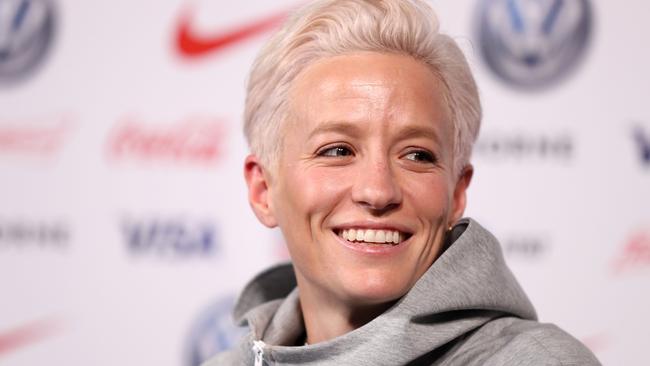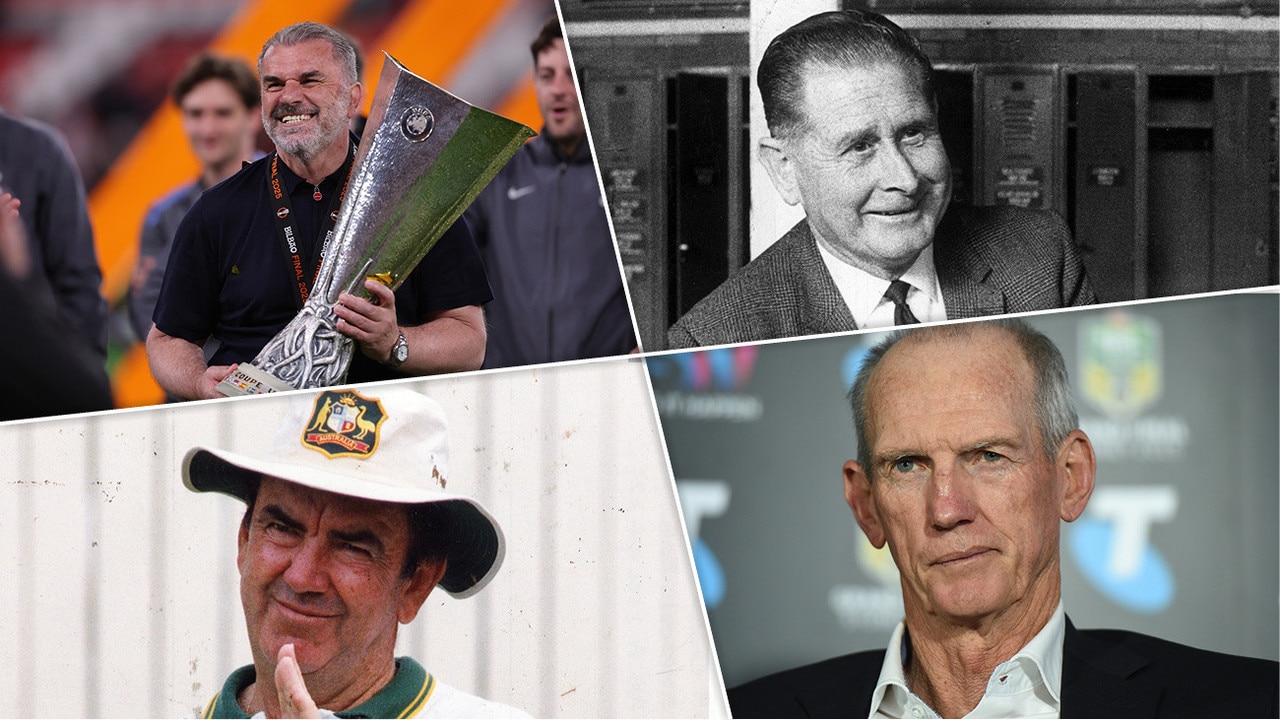Matildas launch campaign for equal World Cup prizemoney
The Matildas have gone nuclear in their fight for improved prizemoney at the Women’s World Cup.

The Matildas have gone nuclear in their fight for improved prizemoney at the Women’s World Cup, launching a formal public campaign to pressure world governing body FIFA into bridging a $US370 million ($532m) gender pay gap.
Australia’s players’ union has warned the world governing body it will use legal means if necessary to extract what they say rightfully belongs to the national women’s team.
A new website under the slogan ‘Our Goal Is Now’ will lead the charge. Players and fans are encouraged to spread the word via the hashtags #OurGoalisNow and #WorldCupEquality.
In October, Professional Footballers Australia joined other player bodies in seeking meetings with FIFA about an increase in the prize purse for this month’s showpiece in France. But the FIFA Council pressed on with its announcement to raise the pot to just $US30m.
That is a 100 per cent increase from the $US15m on offer at Canada 2015 but it means the gender chasm has grown, after the men’s pot rose to $US400m in 2018.
The PFA is calling for a total purse of $US336m which, given the Women’s World Cup features eight fewer teams, would bring players in line with the men.
As it stands, the women’s kitty equates to 7.5 per cent of their male counterparts.
Didier Deschamps’ France side received $US38m for lifting the men’s 2018 trophy but this year’s women’s winners will take home $US4m.
Under the current collective bargaining agreement, the Matildas players get 30 per cent of the prizemoney Football Federation Australia receives from FIFA, meaning that if they win the World Cup, the 23 players will split a pool of $US1.2m, for just over $US52,000 per player, or about one-quarter of FIFA president Gianni Infantino’s monthly wage.
Matildas captain Sam Kerr said the issue “kind of made people shake their heads”.
“They up the women’s — they double it — but then they put more into the men, which actually makes the pay gap bigger,” Kerr said from the Matildas’ camp in Eindhoven. “To change that before the World Cup would be really cool and hopefully all the countries can get behind it because it really doesn’t make sense.”
Last week the PFA wrote to tell FIFA it will not let the matter slide on the eve of the tournament, which starts this Thursday.
In the letter, the union describes the Matildas as “victims of discrimination” and says it “reserves the rights of the players to have this matter resolved through … mediation and arbitration”.
“There is no legal, economic or practical reason why this cannot occur after the tournament as the relief the players seek is economic,” it reads. “The FIFA Council is meeting on 3 June 2019. We suggest that, at a minimum, the FIFA Council take the opportunity to increase the prizemoney to be awarded to the participating teams by $US27m to a total of $US57m.
“This will at least address the exacerbation of FIFA’s discriminatory conduct. We can then meet in good faith after the tournament to discuss how to fully realise FIFA’s statutory, regulatory and policy commitments to non-discrimination and the fulfilment of the internationally recognised human rights of the players.”
Some of the world’s best players have been at the forefront of the struggle.
Last week, US star Megan Rapinoe slammed FIFA and called for “a major paradigm shift” and Norway’s FIFA Ballon d’Or winner Ada Hegerberg is boycotting the Cup to get her point across.
PFA deputy chief executive and Matildas great Kate Gill said the campaign aimed to “build awareness and seek activism from an informed position”.
“The PR is in support of a legal position to redress the disparity in prizemoney, asking FIFA to act in line with their statutes,” Gill said.
“They are very clear around not discriminating on the base of gender. The gulf in prizemoney does exactly that.”
THE DAILY TELEGRAPH



To join the conversation, please log in. Don't have an account? Register
Join the conversation, you are commenting as Logout